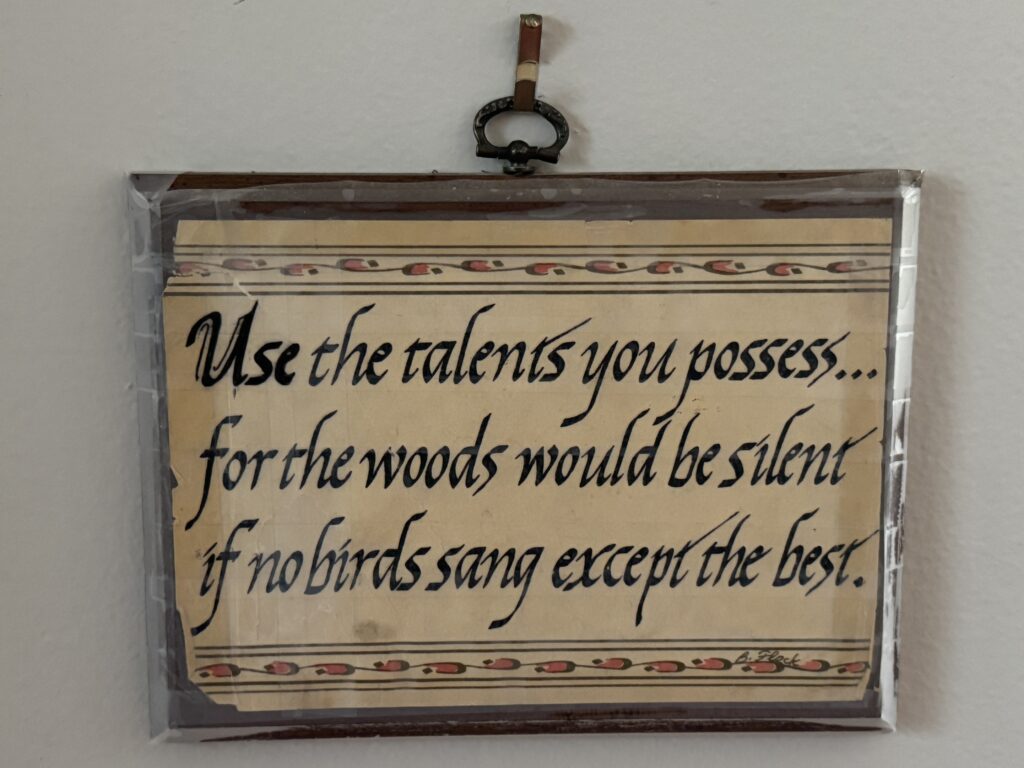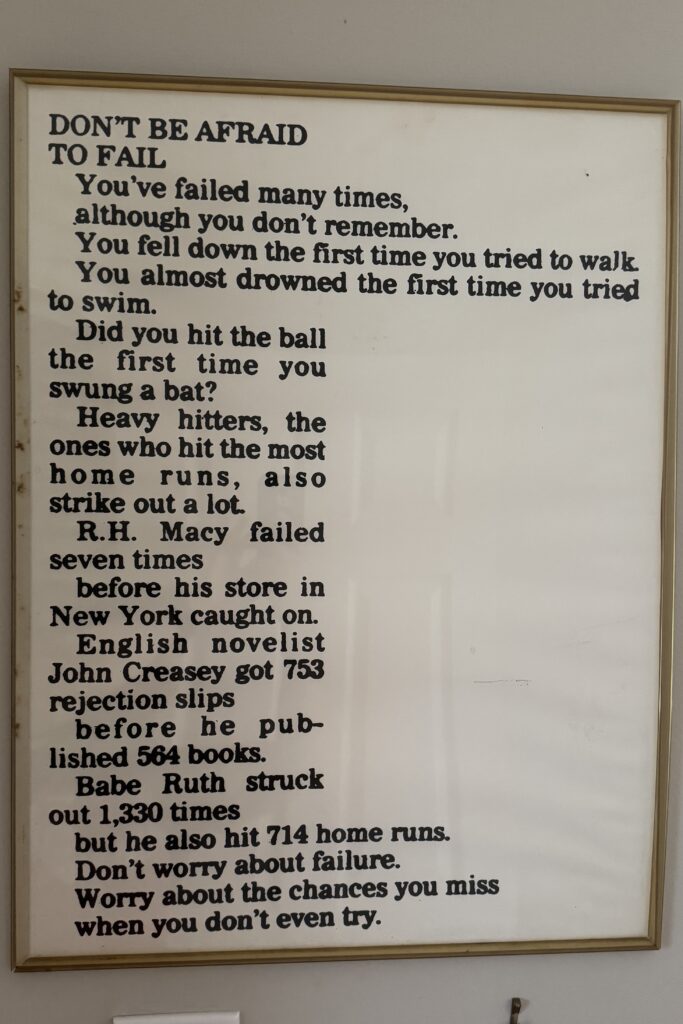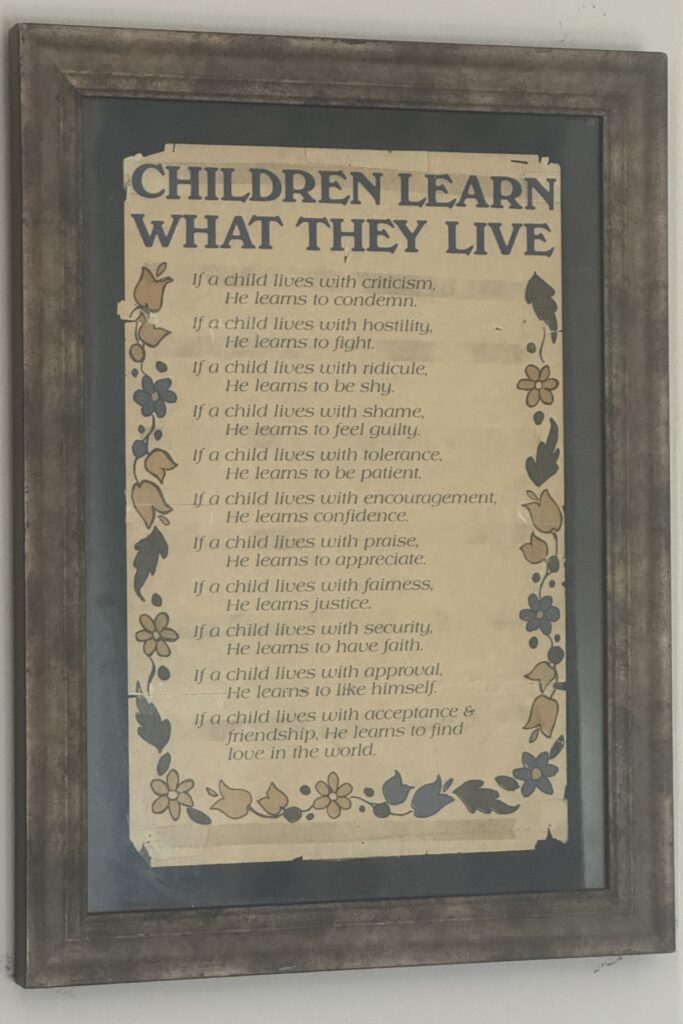The Hidden Battle Shaping What You See as ‘True’
In the 2016 movie Arrival, aliens come to Earth, and we try to communicate with them. It’s a story about language, time, and what shapes our perception.

One of the big ideas in the film comes from the “Sapir-Whorf hypothesis,” the belief that the language we speak shapes the way we think and see the world.
I believe that’s true. I also believe the reverse is true: how we think and see the world shapes the language we speak.
Both, our language and our reality, are subject to the influence of others.
When Language Shapes Reality

Look into any conflict, and you will always find a battle over language. Because language is never neutral, it shapes how we understand events, people, and possibilities. Language can be a method of control or a means to liberation.
Throughout history, controlling language has been a tool of domination. Knowing that the simplest of terms are often insufficient to describe complex problems, those who seek to control a population will systematically dismantle and reduce the scope of language.
- This is why Imperialists and slave owners would quickly and violently rob native populations of their language.
- This is why authoritarians change or distort the meaning of words to stunt the spread of ideas. You can see this in how the terms “woke” and “fake news” were recently co-opted and redefined.
Both of these ideas are beautifully illustrated in the famous books Brave New World by Aldous Huxley and 1984 by George Orwell — I highly recommend both.
Shrinking language means shrinking the scope of thought. Language is how we build our own and a shared understanding of reality.
When Reality Shapes Language

The inverse is also true: the reality we experience shapes the language we use.
When we are experiencing tension or conflict at work, how we feel (our reality) shapes the words we use to respond.
- If we are hurt or scared, we may choose words to harm someone else in retaliation.
- If we feel safe and secure, we may be more empathetic or compassionate and choose words to heal someone else in response.
We adjust our language based on who we’re with and what’s happening around us.
Once our parents start using our slang, we move on. Once the terms used to signal group affiliation are co-opted or distorted by outsiders or agitators, the words must change.
And some of the most powerful reality shaping happens early. As kids, we develop a “base code” about how the world works.
- It taught us to be big, or to make ourselves small.
- It taught us that the world was kind, or that it was to be feared.
- It taught us to see the world a particular way and gave us an identity to cling to.
Much of this language is installed and embedded deep inside of us without us even realizing it.
When Others Reprogram Us
The tricky part is how easily that base code can be updated without our consent. Hear an idea enough times and it starts to sound true.
- “Crime is rampant” — even though data shows violent and property crime rates have dropped for decades.
- “Immigrants are dangerous” — despite study after study showing the opposite.
When we absorb this language, it quietly shapes our worldview. If left unexamined and unchallenged, we, in turn, shape the worldview of those in our circles.
The Assignment
For the next week, pay close attention to language — yours, and the language around you. Notice:
- The words you choose when you describe events, people, or problems.
- How your mood, assumptions, or experiences influence those word choices.
And when you hear language from others:
- Is it inaccurate, manipulative, or harmful?
- How do you respond — speak up, change the subject, or let it slide?
- If you stay silent, what stopped you — fear, uncertainty, habit, or something else?
Ask yourself:
- Whose language am I using — mine, or someone else’s?
- Do my words reflect the reality I want to live in, or the one I’ve inherited?
- Where might my language — or my silence — be reinforcing ideas I don’t believe in?
- When I hear harmful language, do I challenge it? If not, why not?
- What would I say differently if I wanted my words to create the future I imagine?
Arrival was right: language shapes our reality. But the reverse is also true — our reality shapes our language.
This cycle is always in motion. We can let others direct it for us, or we can take an active role in shaping it for ourselves, for others, and for the world we want to build together.
That means more than watching what comes out of our own mouths. It means interrupting language that’s harmful, false, or designed to create a world that serves the few at the expense of the many. It means treating language for what it is: the programming language of reality, and the expression of what is or could be.
We are co-creating this world every day with our words. Let’s not be passive participants in someone else’s design. The stakes are too high.
…
“Thank you for your attention to this matter.”




